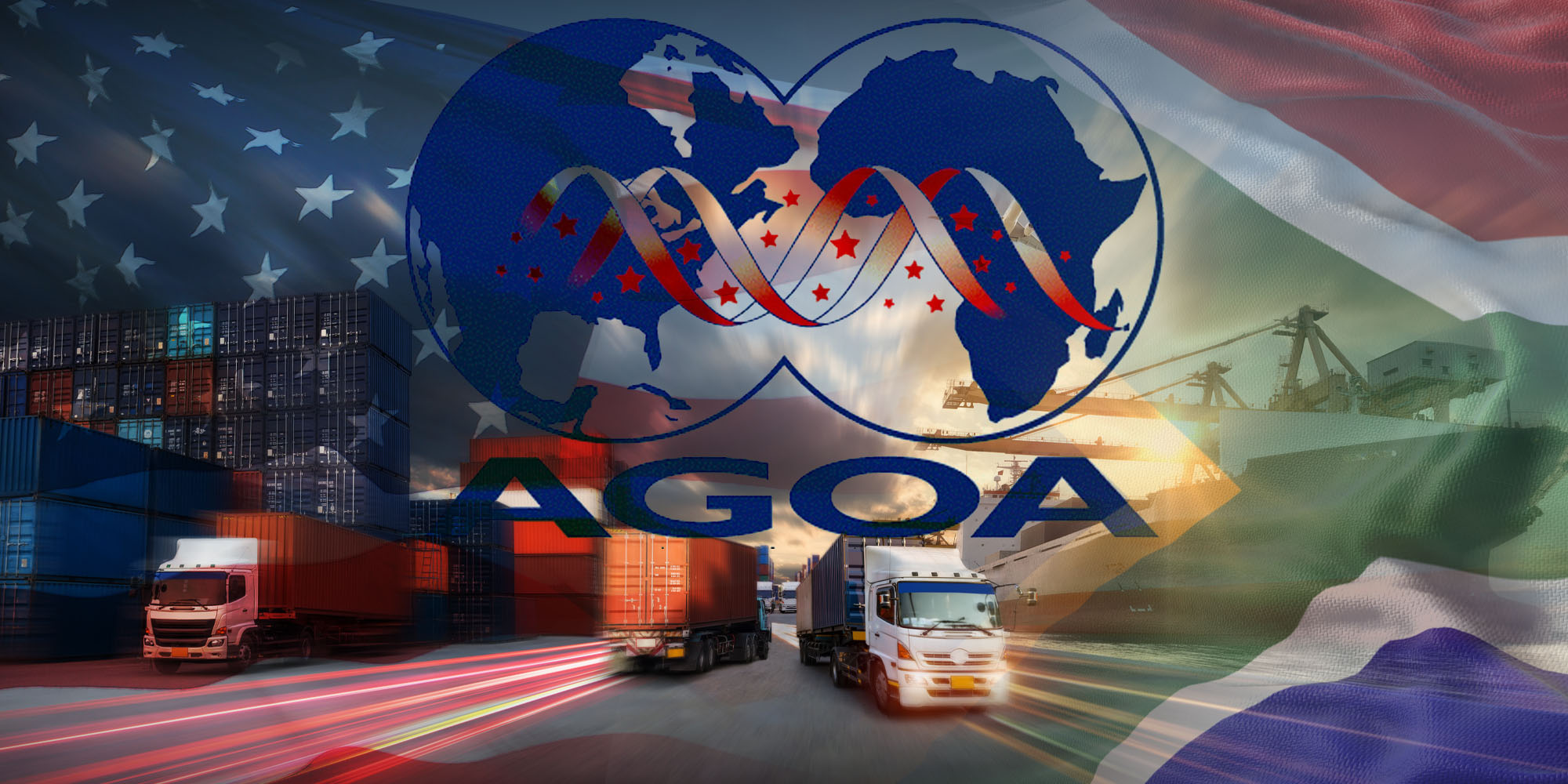‘Our baseline view is that South Africa will exit Agoa,” said local Citi MD and head of South Africa research Gina Schoeman to the surprise of no one on a recent media briefing call, doubling down with an emphatic, if unnecessary, “the consensus actually is that South Africa will exit Agoa”.
While the exact timing remains uncertain, Schoeman suggested it could happen before the September deadline.
Despite the potential for US retaliation around events like the BRICS summit, she argued that from a macroeconomic perspective, the impact wouldn’t be catastrophic, with Agoa exports representing “just under 0.1% of GDP” according to Citi research.
However, she cautioned about the micro-level consequences, particularly for the automotive sector, where beneficiaries are “highly concentrated”.
Schoeman explained that it would be important to have exit negotiations, suggesting a “lapsed exit” to ease the transition for affected industries and considering the broader impact on “continental trade relations”.
Ultimately, Citi’s position is that “it’s in South Africa’s best interest to exit before it’s asked to leave”.
The age of uncertainty
This response is something previously alluded to by my colleague, Peter Fabricius, when he wrote last week that: “Daily Maverick understands that SA’s only hope is for some form of short-term extension of its Agoa benefits – which boost exports by about $4-billion a year – to provide time for it to negotiate either a conventional two-way free trade deal, or some form of strategic investment framework”.
Read more: SA’s best shot for salvaging US relations is ‘a reciprocal trade deal replacing Agoa’
The country’s automotive manufacturers, who Schoeman said will be most affected, are also hopeful of a proactive response.
The African Association of Automotive Manufacturers (AAAM), a pan-African special interest lobby group, acknowledged the uncertainty surrounding Agoa’s future under the Trump administration and the broader implications of South Africa’s possible exit ahead of the September renegotiation.
“The automotive manufacturing industry in South Africa, which relies heavily on exports to the US under Agoa, could face significant disruptions if preferential trade benefits are revoked,” AAAM CEO Victoria Backhaus-Jerling told Daily Maverick.
This would affect local production, job creation and investment in the sector, prompting the need for urgent regional strategies to mitigate risks.
“African nations must unite in response to potential policy shifts, ensuring resilience and adaptability in the face of changing trade dynamics.
Playing the critical mineral trump card
Despite these challenges, AAAM remains optimistic about Africa’s strategic importance to the US, noting that the continent’s critical mineral resources are a key asset.
“There is growing regional collaboration around mineral beneficiation, which could position the continent more competitively in global trade,” Backhaus-Jerling said.
She also highlighted a need for inclusivity in the automotive value chain to safeguard Africa’s economic interests.
“Strengthening intra-African collaboration under the Africa Continental Free Trade Area (AfCFTA) and diversifying trade partnerships will be essential to securing the future of the region’s automotive and industrial sectors.”
Investors gambling with the rand
Schoeman’s economic outlook presentation revealed how global and local investors are increasingly gaming the South African economy based on political developments, creating what she describes as “a year of significant uncertainty” building upon a decade of similar themes.
“The fluid nature of the timelines and potential disagreements between the ANC and DA create vulnerability for the currency,” she noted, explaining how political wrangling directly impacted on market sentiment and investment decisions.
This calendar-based approach to investment strategy has intensified as tensions within the Government of National Unity (GNU) have become more apparent.
Investors have developed what she calls a “macro monitor” of numerous events throughout the year that could affect South Africa’s economic trajectory, particularly focusing on South Africa-US relations.
These include Agoa forums, the BRICS summit and the critical Agoa reauthorisation deadline on 30 September.
The parliamentary budget approval process has become a particularly sensitive focal point, with both domestic and international investors using it as a barometer for GNU stability.
Schoeman’s baseline expectation is that “between the ANC and the DA, they should find a way to pass the fiscal framework and then remove VAT separately from that so that we can proceed with the actual budget without creating unnecessary fiscal uncertainty”.
However, continued opposition to key budget elements poses a risk of increased country risk premium, potentially triggering capital outflows that could further pressure the rand.
A long road back to positive sentiment
“If you want to have a sense of how much GNU collapse in South Africa could bring, just think back to that tail risk that was being priced in somewhat into our 2024 elections,” Schoeman cautioned, explaining that the sustainability of the GNU has become a major concern for international investors who use political developments to time their market entry and exit points.
For South Africa to improve its economic trajectory, Citi researchers identified three key drivers: implementation of structural reforms, increased investment and cyclical tailwinds – all of which require a degree of political certainty that investors can factor into their strategies.
“When you hit 16% of GDP as an investment ratio, your type of investment is no longer just C-effects.”
“It’s not just replacement and maintenance. It’s bricks and mortar,” Schoeman explained, suggesting that achieving this threshold required the political stability that would give investors confidence in long-term commitments. DM





